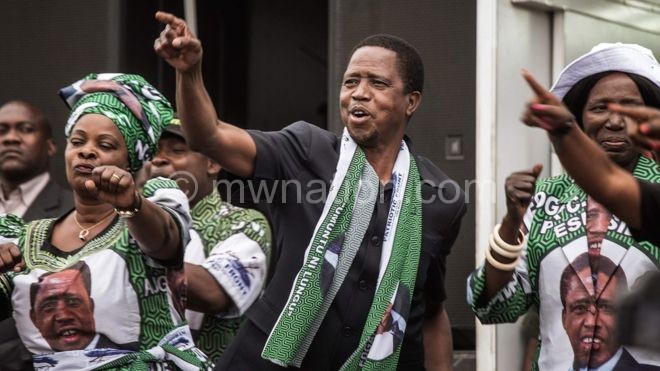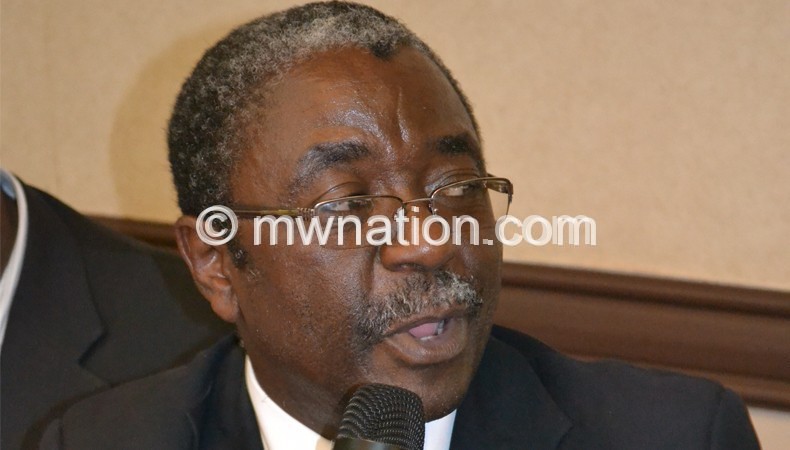Lesson from Zambia: 50-plus one electoral system passes test
- Can the system work in Malawi?
Previously, Zambia, just like Malawi, had been using the First-Past-The-Post (FPTP) or winner-takes-all system to elect presidents, members of Parliament (MPs) and ward councillors.

During last week’s polls, Zambia successfully implemented the new system that saw President Edgar Lungu being reelected after securing 50.35 percent, just above the 50 percent threshold needed to avoid a rerun.
Under the 50+1 electoral system, the triumphant contender is decided on the basis of getting a majority 50 percent plus one of the votes to win.
In Malawi, a simple majority is currently required for one to win the presidency without provision for a runoff election, a development some commentators have argued has tended to put leaders with no national mandate in office.
But constitutional law expert Edge Kanyongolo said in an interview yesterday the Zambians have just proven that the 50+1 electoral system “actually works”.
He said: “There are many anxieties that are expressed here [in Malawi], but for me the biggest lesson is that the system does work to cement the legitimacy of the President.”

are many anxieties
Kanyongolo, an associate professor of law at Chancellor College (Chanco), a constituent college of the University of Malawi (Unima), said the other lesson from Zambia was the efficiency in processing results.
He said: “I know there were delays, but they have been able to process the results within a short period. They announced the results fairly quickly after the election.”
Political scientist Happy Kayuni, also of Chanco, said after debating the 50+1 system for so long, it was high time Malawi decided on its adoption.
He said the Zambians have offered Malawi a big lesson to also “adopt the same” because the system has a major advantage in the context of where the voting pattern tends to be in dispute.
Said Kayuni: “When you have a president, for instance, who wins 30 percent of the votes or below it does not carry the national perspective, therefore, it is important for Malawi to adopt the same system.
“The Zambian case is a good example that should initiate debate in the country about the systems we are following.”
Reacting to the developments in Zambia in response to The Nation enquiry, Malawi Congress Party (MCP), Democratic Progress Party (DPP), United Democratic Front (UDF) and Malawi Forum for Unity and Development (Mafunde) applauded Zambia for successfully adopting and implementing the new system.
On his part, MCP president Lazarus Chakwera said: “If our friends are able to adopt and implement like that, similarly we can do the same. There is no use having all the consultations and then not implement any of them.
“Many of these things are doable except that sometimes there is unwarranted fears of the unknown.”
UDF secretary general Kandi Padambo said “the lesson from Zambia is that if we are determined to achieve it can be done. If Zambia can do it, why not us?”
However, DPP secretary general Ecklain Kudontoni said while the governing party had learnt a lot from the Zambian elections, Malawians will have to decide whether to adopt the 50+1 electoral system.
Earlier this year, a National Task Force on Electoral Reforms recommended, among others, that winner of the presidential election be declared after amassing an absolute majority of 50-plus-one instead of the current simple majority.
Out of the five general elections since the transition to multiparty democracy in 1993, three candidates have made it to State House with less than 50 percent of the popular vote.
In the first post-independence multiparty elections in 1994, Bakili Muluzi won the presidency with 47 percent although later, in his second term, won with 52 percent in 1999.
In 2004, the late Bingu wa Mutharika made it with 36 percent, but his approval rating surged to 66 percent five years later in 2009. His younger brother, Peter, in 2014 secured the presidency with about 36 percent of the votes cast.
In May this year, the Malawi Law Commission said it had instituted a special law commission comprising 18 members from the civil society, media, academia, clergy and government agencies to review the electoral laws.
Previously, the National Constitutional Review Conference has also recommended the 50-plus-one system. However, the recommendations have not been implemented.






Please do not trust the analysis given by Chanco brain. It is based on wrong assumptions. Zambian election is not a good example to base an argument. Chanco lecturers do not think correctly. No wonder it is least in ranking in the world.